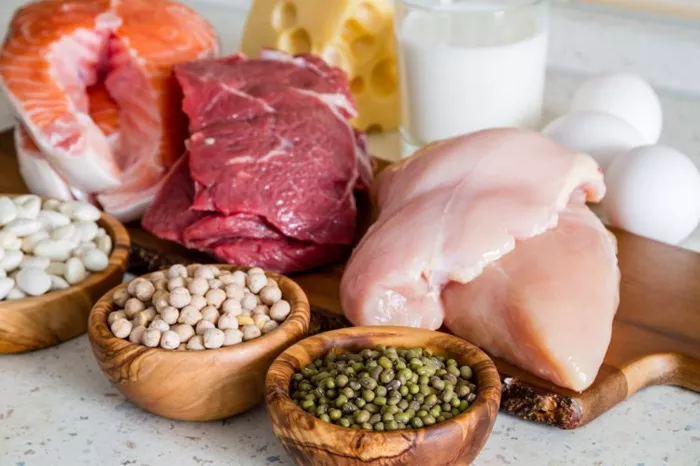Breastfeeding is a critical period in both a mother and baby’s life, requiring careful consideration of dietary choices to ensure optimal health and nutrition. Among the various dietary factors, protein intake stands out as a crucial element. This article delves into the benefits and considerations of a high-protein diet for breastfeeding mothers, examining its impact on both maternal health and infant development.
Importance of Nutrition During Breastfeeding
Nutritional Needs of Breastfeeding Mothers
Breastfeeding mothers have increased nutritional needs to support milk production and maintain their health. Proper nutrition is essential to:
Ensure an adequate supply of breast milk.
Support maternal energy levels and overall health.
Promote the healthy growth and development of the infant.
Role of Protein in the Body
Proteins are vital macronutrients involved in numerous bodily functions, including:
Building and repairing tissues.
Producing enzymes and hormones.
Supporting immune function.
Maintaining muscle mass and strength.
SEE ALSO: Does Eating Chocolate While Breastfeeding Cause Colic?
Benefits of a High-Protein Diet for Breastfeeding
Enhanced Milk Production and Quality
A high-protein diet can positively impact milk production and quality. Protein is a key component of breast milk, providing essential amino acids that are crucial for the infant’s growth and development. Adequate protein intake ensures that the mother can produce nutrient-rich milk, supporting the baby’s nutritional needs.
Support for Maternal Health
Breastfeeding can be physically demanding, and a high-protein diet helps maintain the mother’s health and energy levels. Protein aids in muscle repair and recovery, which is particularly important for mothers recovering from childbirth. Additionally, it helps stabilize blood sugar levels, reducing fatigue and enhancing overall well-being.
Weight Management
Many breastfeeding mothers are concerned about postpartum weight management. Protein-rich foods are satiating, helping to control appetite and reduce the likelihood of overeating. This can be beneficial for mothers aiming to lose weight gradually and healthily while ensuring they get the necessary nutrients.
Recommended Protein Intake for Breastfeeding Mothers
Daily Protein Requirements
The recommended daily protein intake for breastfeeding mothers varies based on factors such as age, weight, and activity level. On average, lactating women should aim for approximately 71 grams of protein per day. This requirement may be higher for mothers with greater energy expenditure or those breastfeeding multiple infants.
Sources of High-Quality Protein
Breastfeeding mothers should focus on consuming high-quality protein sources, including:
Lean meats (chicken, turkey, beef).
Fish and seafood.
Eggs.
Dairy products (milk, cheese, yogurt).
Legumes (beans, lentils, chickpeas).
Nuts and seeds.
Soy products (tofu, tempeh).
Potential Risks and Considerations
Balanced Diet
While a high-protein diet can offer numerous benefits, it is essential to maintain a balanced diet that includes a variety of nutrients. Overemphasis on protein at the expense of other food groups can lead to nutrient imbalances. Breastfeeding mothers should ensure they consume sufficient carbohydrates, healthy fats, vitamins, and minerals.
Hydration
Protein metabolism generates waste products that need to be excreted through urine. Therefore, adequate hydration is crucial to support kidney function and overall health. Breastfeeding mothers should drink plenty of water throughout the day to stay hydrated and support milk production.
Individual Variations
Every mother’s dietary needs and tolerances vary. Some women may find it challenging to consume high amounts of protein or may have dietary restrictions (e.g., vegetarian or vegan diets). It is important for mothers to tailor their protein intake to their individual preferences and health conditions, potentially seeking guidance from a healthcare professional or nutritionist.
Incorporating Protein into the Breastfeeding Diet
Meal Planning Tips
To ensure a high-protein diet, breastfeeding mothers can incorporate protein-rich foods into their daily meals and snacks. Here are some practical tips:
Breakfast: Start the day with a protein-packed breakfast, such as eggs with whole-grain toast, Greek yogurt with fruit and nuts, or a smoothie with protein powder and spinach.
Lunch: Include lean protein sources in lunch, such as grilled chicken salad, a turkey sandwich, or a quinoa and black bean bowl.
Dinner: Focus on balanced dinners with protein, vegetables, and whole grains. Examples include baked salmon with roasted vegetables, beef stir-fry with brown rice, or tofu and vegetable stir-fry.
Snacks: Opt for high-protein snacks like cottage cheese, hummus with vegetables, a handful of almonds, or a protein bar.
Protein Supplements
In some cases, protein supplements can be a convenient way to meet daily protein needs. However, it is important to choose high-quality supplements and avoid excessive intake. Protein powders, shakes, and bars can be beneficial, but they should not replace whole food sources of protein.
Special Considerations for Different Dietary Preferences
Vegetarian and Vegan Diets
Vegetarian and vegan mothers can still achieve adequate protein intake by focusing on plant-based protein sources. Key sources include:
Legumes: Beans, lentils, and chickpeas.
Soy Products: Tofu, tempeh, and edamame.
Whole Grains: Quinoa, bulgur, and farro.
Nuts and Seeds: Almonds, chia seeds, and hemp seeds.
Plant-Based Milk: Soy milk, almond milk, and pea protein milk.
Combining different plant-based proteins throughout the day can ensure a complete amino acid profile.
Food Allergies and Intolerances
Mothers with food allergies or intolerances should carefully choose their protein sources. For example, those allergic to dairy can opt for lactose-free products or plant-based alternatives. It is important to read labels and consult with a healthcare provider to avoid allergens and ensure adequate nutrition.
Conclusion
A high-protein diet can be highly beneficial for breastfeeding mothers, supporting both maternal health and infant development. By focusing on high-quality protein sources and maintaining a balanced diet, mothers can ensure they meet their increased nutritional needs during this critical period. As always, individual dietary preferences and health conditions should be considered, and professional guidance may be helpful to tailor the diet appropriately.
Ensuring adequate protein intake is just one aspect of a healthy breastfeeding diet. By paying attention to overall nutrition and lifestyle, mothers can provide the best possible start for their babies while maintaining their own health and well-being.


